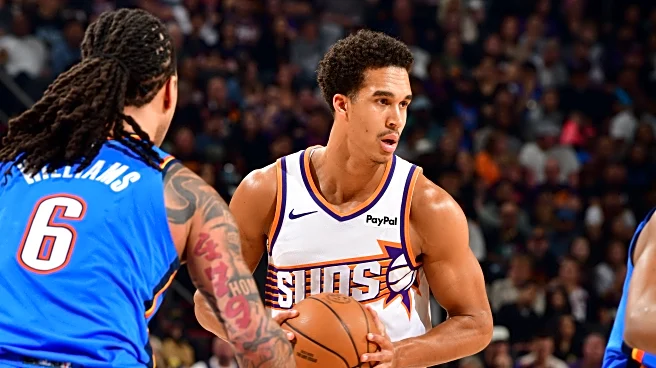What's Happening?
A federal judge has ruled against the Trump administration's attempt to cut federal grants to domestic violence victim aid groups that employ diversity, equity, and inclusion (DEI) efforts. Judge Melissa R. DuBose issued a preliminary injunction preventing the U.S. Department of Housing and Urban Development (HUD) and the Department of Health and Human Services (HHS) from enforcing new conditions that would restrict the use of grant funds for DEI initiatives. The ruling follows a lawsuit filed by nearly two dozen aid groups, which argued that the administration's conditions were ideologically driven and unrelated to the programs' purposes. The court found that the administration's decision-making process was arbitrary and lacked a valid rationale.
Why It's Important?
This ruling is significant as it protects the funding and operational scope of organizations that support vulnerable populations, including victims of domestic violence and sexual assault. The decision underscores the judiciary's role in checking executive actions that may overreach or impose ideological constraints on federally funded programs. The injunction ensures that these groups can continue their DEI efforts without the threat of losing essential federal support, which is crucial for their mission to aid marginalized communities. The case highlights ongoing tensions between federal policy directives and the autonomy of organizations in implementing inclusive practices.
What's Next?
The litigation will continue as the court examines the details of the administration's decision-making process. The ruling may set a precedent for similar cases where federal funding is threatened due to ideological conditions. Stakeholders, including civil rights groups and advocacy organizations, are likely to monitor the case closely, as it could influence future policy and funding decisions. The Trump administration may seek to appeal the decision, potentially escalating the case to higher courts.
Beyond the Headlines
The case raises broader questions about the balance between federal oversight and the independence of organizations in pursuing inclusive and equitable practices. It also touches on the ethical implications of using federal funding as leverage to enforce ideological compliance, which could have long-term effects on the relationship between government agencies and non-profit organizations.










